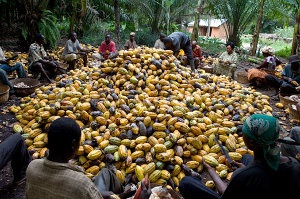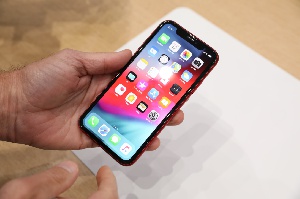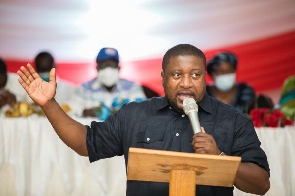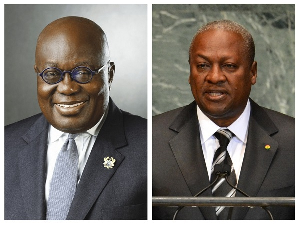Dr Francis Oppong, Deputy Chief Executive, Ghana Cocoa Board today said “Cocoa farmers are the bedrock of our industry and yet they appear to be the most vulnerable link in the cocoa value chain”.
Adding that, farmers are poor and less competitive in spite of the cash crop’s immeasurable contribution to national development.
Dr Oppong was speaking at the launch of Cocoa Rehabilitation and Intensification Programme (CORIP) in Tema, where the average yield of the Ghanaian cocoa farmer is relatively low and that “Low productivity leads to low income and poverty among cocoa farmers”
He said the farmers lack the needed resources to invest in the requisite imputs to enhance the productivity of their farms as well as achieving better livelihoods, which include education for their children.
Dr Oppong mentioned high stock of over aged trees, high population of aged farmers, diseases tress, diseases and pest and lack of access to imputs as some of the factors undermining the lives of Ghanaian cocoa farmers.
According to him, the Cocobod had outlined unpublished measures to make cocoa farming more lucrative to attract and sustain the interest of the youth.
Ms Lilianne Ploumen, the Dutch Minister of Foreign Trade and Development Cooperation, who officially launched the CORIP, said the Netherlands aims at bringing together all those on the cocoa value chain to work at finding solutions to common problems to make the industry more sustainable.
The Netherland Embassy in Ghana is co-funding the 14 million euro project with private sector actors. CORIP aims at developing the economic, social and social sustainability of cocoa farming in Ghana by addressing the institutional challenges of the cocoa supply chain and as a result find efficient ways of providing support services to cocoa growers.
The programme also aims at establishing Rural Service Centres (RSC) across the cocoa belt to facilitate the transfer of knowledge and credit imputs as well as technical support necessary for growth of the cocoa production. Ghana is the second largest world producer of cocoa which rakes in an average of 2 billion dollars into her purse annually.











